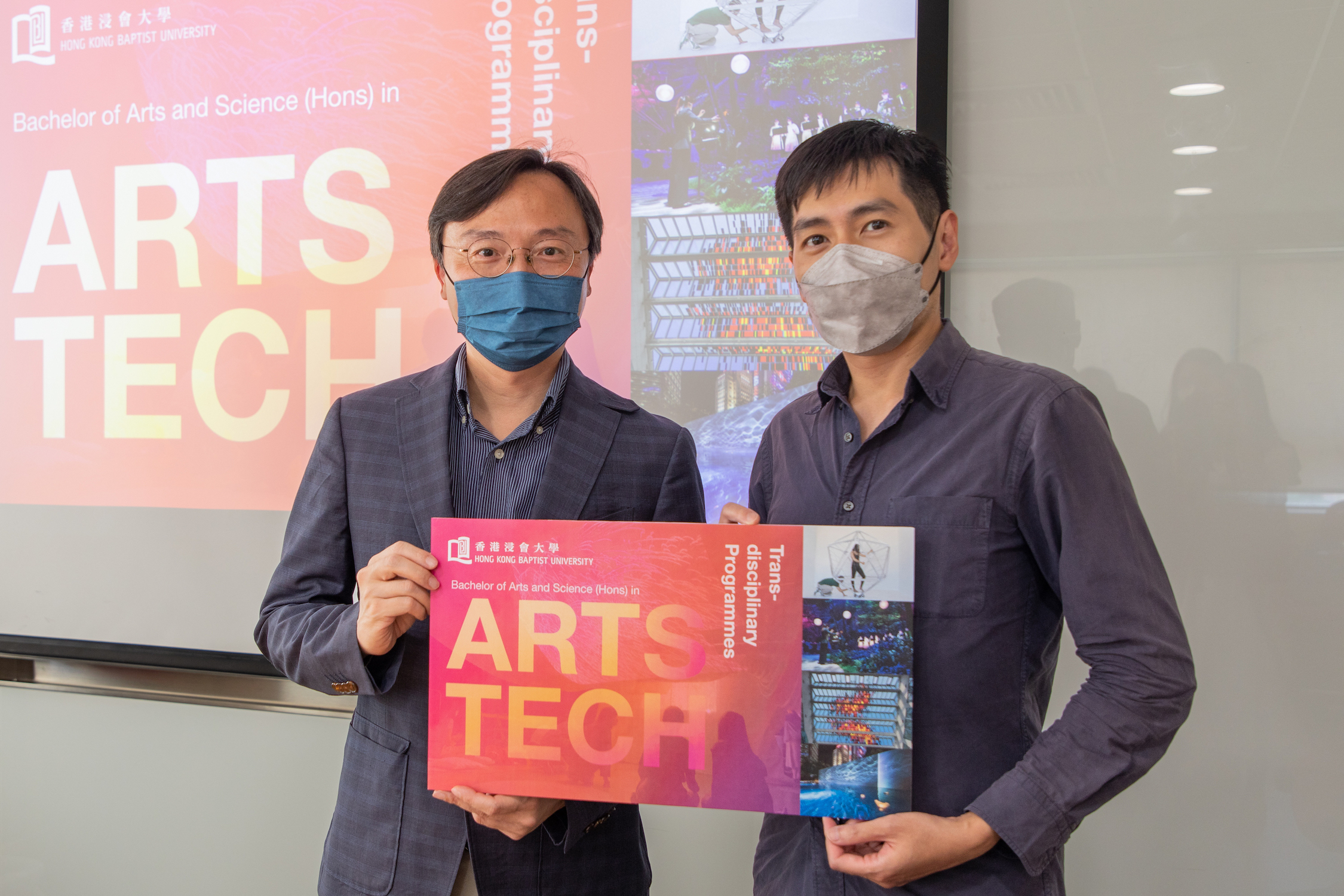Discover HKBU
New transdisciplinary programme to nurture Arts Tech talents
29 Aug 2022


Today’s exhibitions increasingly blend art and technology, enabling visitors to enjoy immersive experiences and to appreciate art with a new perspective. For instance, the East Kowloon Cultural Centre, which is currently under construction, is set to foster interest in and understanding of arts tech in the wider community. With rapid advancements occurring in technology almost on a daily basis and the establishments of new cultural venues, there is a rising demand for arts tech talents.
To cultivate talents who are well-versed not only in the arts and culture but also in technology, HKBU will launch the Bachelor of Arts and Science (Hons) in Arts and Technology programme in the 2022/23 academic year. This programme, which is offered by the newly established School of Creative Arts, will admit 40 students annually. Students will learn a variety of innovative technologies, including extended reality, immersive media art, generative art and artificial intelligence (AI), intelligent sound and music production, and creative robotics. Students will learn to incorporate these technologies into artistic productions and other real-world applications.
Nurturing creativity to address global challenges
Transdisciplinary learning has gained prominence in higher education in recent years. “As the challenges of today’s world have become increasingly complex, students need to be able to think across disciplines and develop creativity so they can address different issues in society,” says Professor William Cheung, Associate Vice-President (Undergraduate Programmes) and Professor of the Department of Computer Science. He envisions that the new programme will nurture students’ ability to integrate knowledge in the arts and computing science, and it will incorporate the use of the metaverse in teaching and learning, and introduce students to virtual technologies.
Mr Kingsley Ng, Director of the new programme and Associate Professor of the Academy of Visual Arts, stresses that the transdisciplinary programme does not only teach students how to utilise technology, but also helps them develop aesthetic appreciation and critical thinking skills. He says, “Arts tech and its applications have generated a number of complex ethical questions. Students in this new programme will learn how to tackle the critical topics emerging in cross-disciplinary art.”
The first year of the curriculum is designed to equip students with a strong academic foundation, help them discover their interests in different fields, and develop their critical thinking skills. Students who complete the first year of study can choose one of the three concentrations, namely Visual, Sound and Technology, to deepen their learning. Additionally, they are required to finish the transdisciplinary common core course “Global Challenges.” This helps them understand how different disciplines can attend to global issues such as sustainable development, and learn to devise innovative solutions with design thinking.
Exploring new possibilities for the future
Students of different transdisciplinary programmes will work together on collaborative projects, and this will provide them with the opportunity to solve problems in a cross-disciplinary approach and enhance their teamwork skills. For their projects, students can use the University’s facilities, including the Augmented Reality Laboratory and Creative Robotics Laboratory, as well as the state-of-the-art facilities at the Jockey Club Campus of Creativity, due to be completed by 2024.
Through internships and experiential learning programmes, students will have the chance to work with art professionals. This will expose them to different fields, such as art production, the art trade, and other creative and emerging art forms, and will be a valuable opportunity for their future career pursuits. Mr Ng believes that graduates of the programme will possess a wide skill set, including knowledge of technologies such as AI applications and big data analysis, a good aesthetic sense and critical thinking abilities, thereby opening up a wide range of choice for their future careers.
Professor Cheung says, “The new transdisciplinary programme keeps abreast with the changes and needs of today’s world. Through this programme, students who wish to step out of their comfort zones and push the boundaries can learn something new that is beyond what they are proficient at and explore different possibilities.”